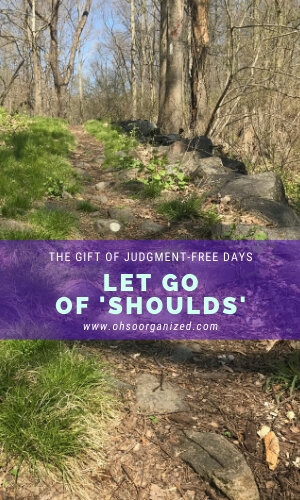There have been many words used to describe 2020. In a recent article in The Washington Post, readers offered their one word or phrase for the year, including “exhausting, lost, chaotic, relentless, heartbreaking, transformative, and the year of missing.” Perhaps the word that I heard (and possibly used) the most was unprecedented. It was that kind of year. We tried our best to navigate the unknown, find strength when life got worse than ever imagined, extend compassion and grace to ourselves and others, and find some balance in a continually changing situation.
It’s been a harsh year, a year of struggle. We needed love, compassion, support, and connection more than ever. With pandemic restrictions reducing in-person contact, technology played a starring role to help us virtually spend time together. I blogged and had meaningful conversations with you throughout these past months, as we experienced and worked through this year together. We shared our silver linings and losses.
Being a reflective time of year, I am revisiting the past before moving ahead to the future. As part of the review, I selected highlights, one from each month, of the most compassionate organizing concepts of 2020. My hope is you discover a seed idea that will inspire your New Year.
Where do you want to focus on creating the level of organization and balance that you desire? Which people and projects will receive your time, energy, and attention?
12 Compassionate Organizing Concepts
Winter 2020
Fresh Start - How to Choose Words That Will Positively Affect Your Fresh Start
“Your life and success will not be defined by the nouns you choose. It will be defined by the verbs.”
Embrace Change - 3 New Ideas That Will Help Inspire Your Change
“If you’re not sure about the change you want to make, give yourself some ‘wander time’ and see what transpires.”
“Next might need to be a big dose of self-compassion. Or, perhaps it will be you reaching out to someone else that is hurting.”
“What expectations of normal am I letting go of today?”
“Mind clutter worry is unproductive. And as it turns out, it’s a good teacher too.”
Time Management - Are You Making Time for ‘The Good Stuff’?
“In your mix of doing, are you making time to notice and embrace the good stuff?”
“Motivation is in the growing.”
Enlisting Help - How to Get Help Setting and Celebrating Your Big Goals
“A goal doesn’t happen in a vacuum. We need help with accomplishing our goals and celebrating them along the way.”
“It is in the practice of shifting attention, awareness, and return that we become more mindful.”
“We live in challenging times. Yet even in the darkest days, there is hope. There is love. There are possibilities.”
Wonderfully Human - How to Enjoy Pandemic-Time Holidays With More Gratitude and Creativity
“The initial sadness for not being able to gather has morphed into positive anticipation for the ways we’ve reimagined the holiday.”
“Feeling balanced is a fluid and a continually shifting dynamic.”
My deepest gratitude goes to you for being an integral part of this vibrant community. We’ve had an incredible year of conversations and sharing. You bring learning, growth, support, and inspiration to every exchange. Thank you for coming back again and again to participate and share the best of who you are.
What inspired you this year? Which compassionate organizing concept resonates most with you? I’d love to hear your thoughts. I invite you to join the conversation.











